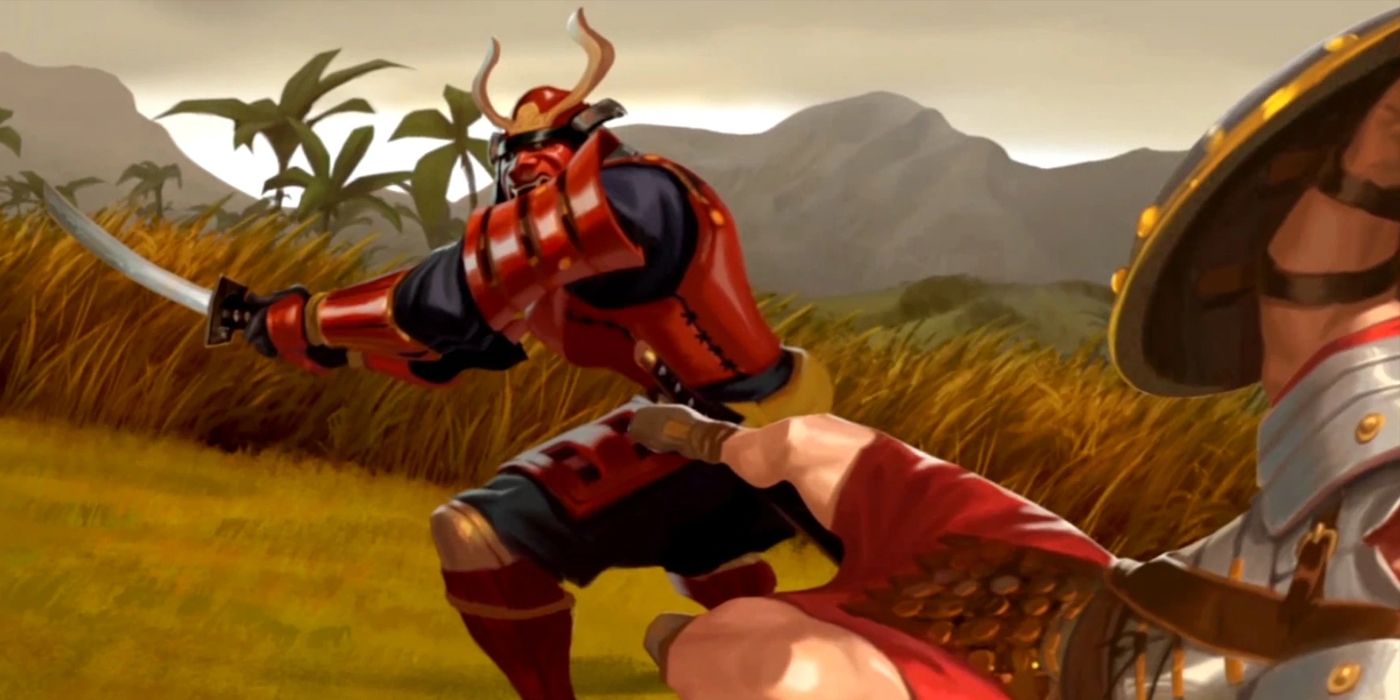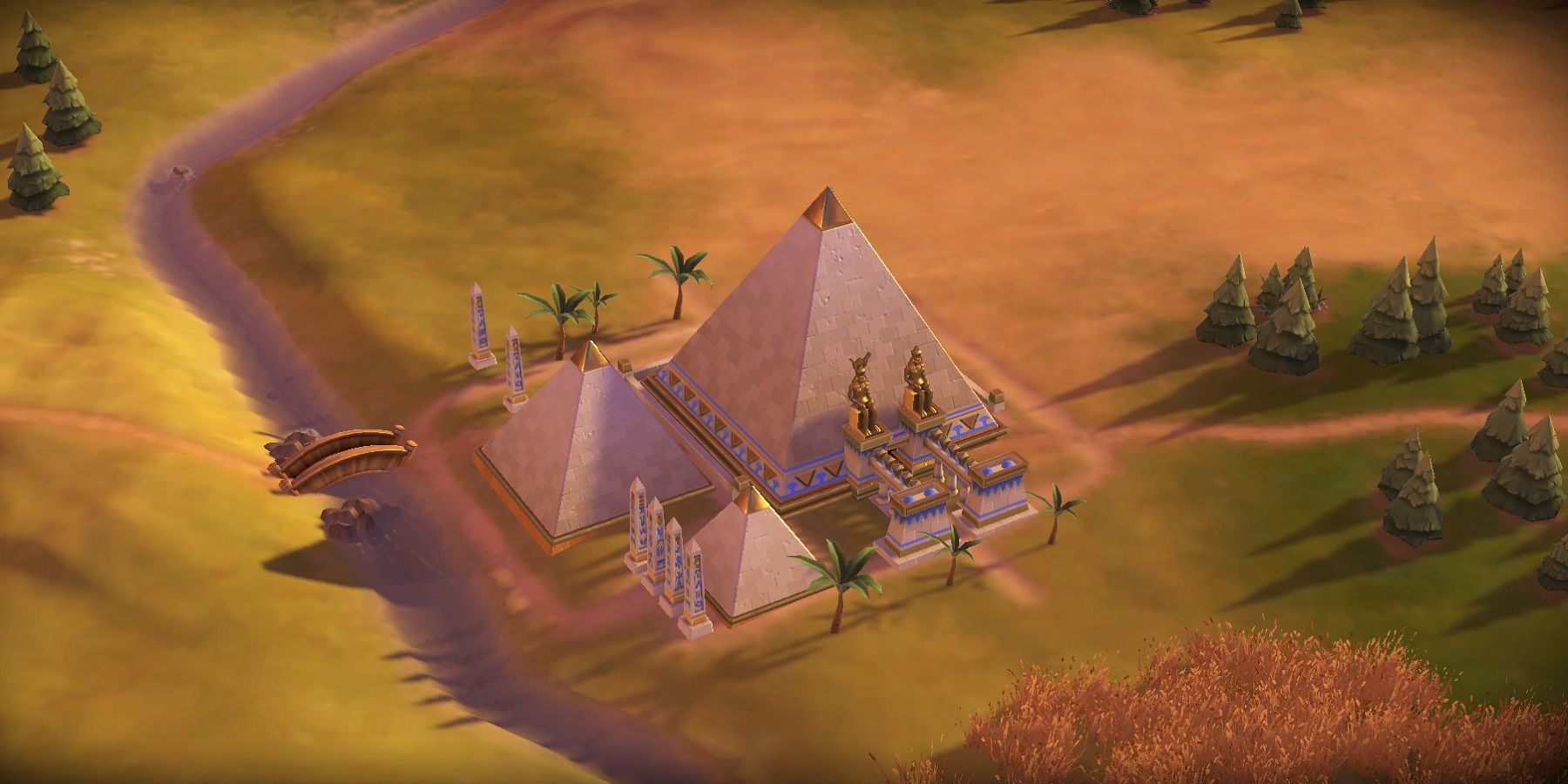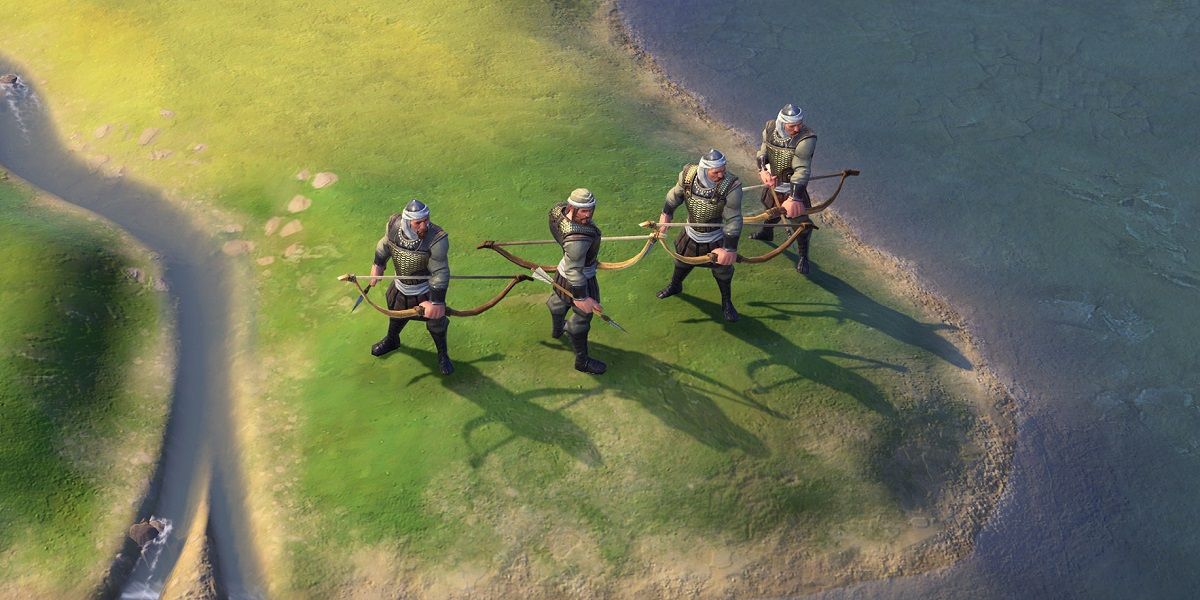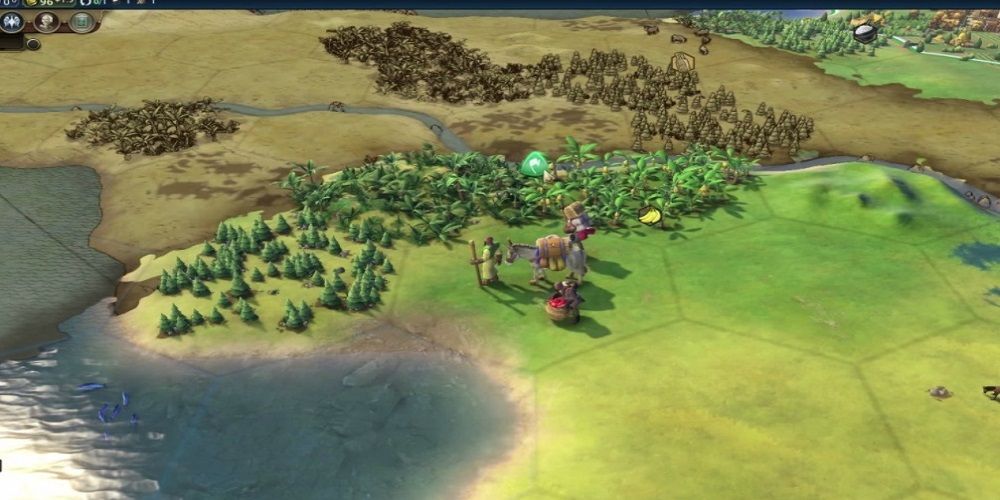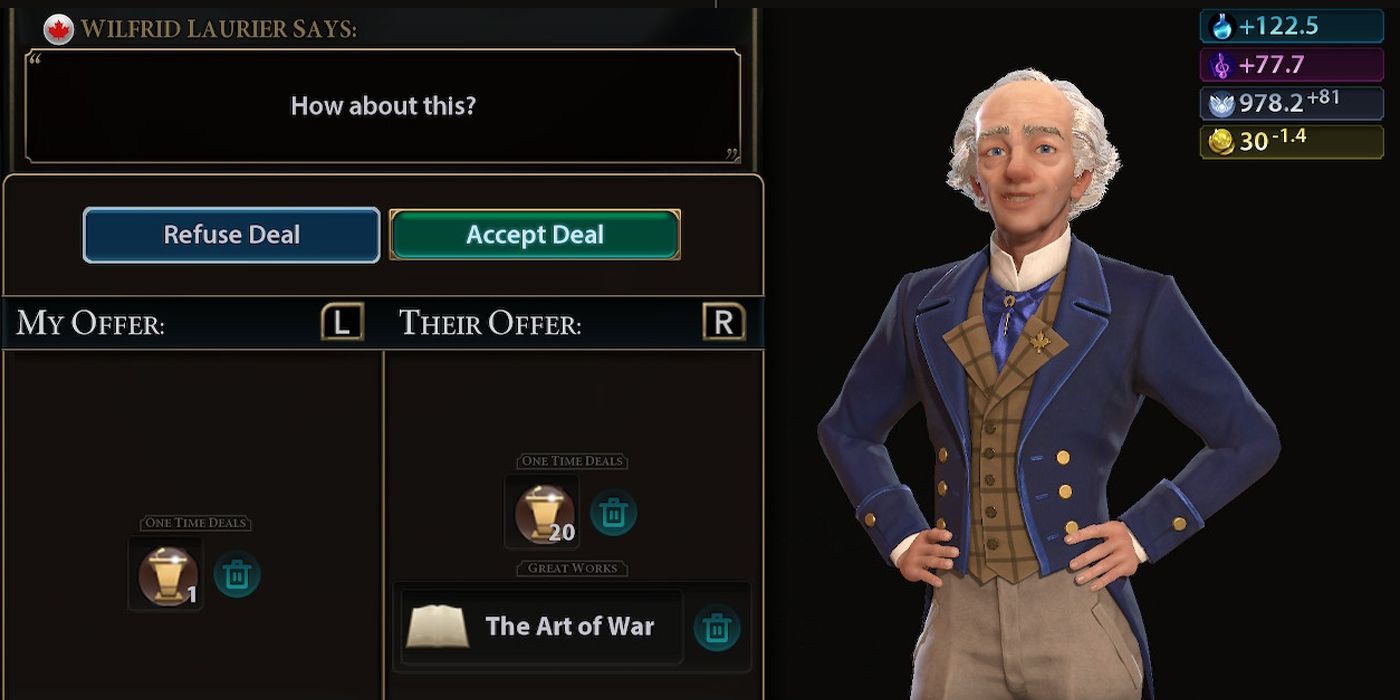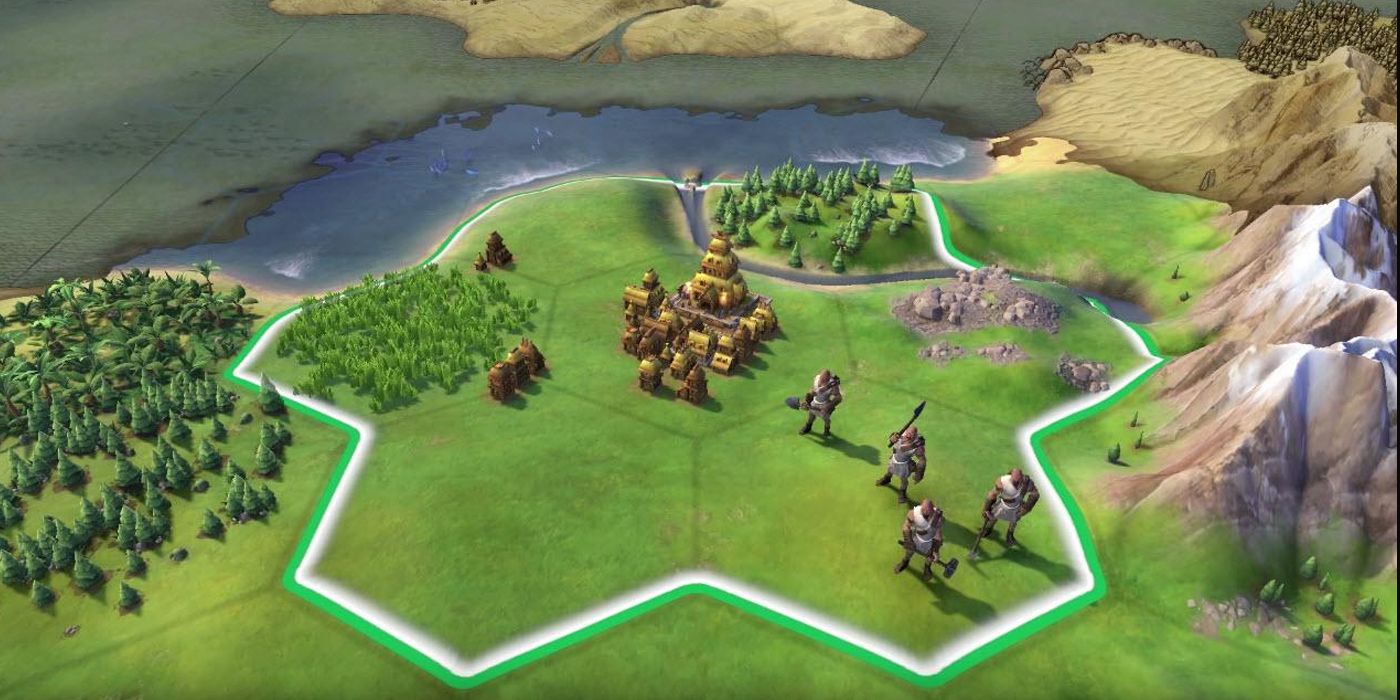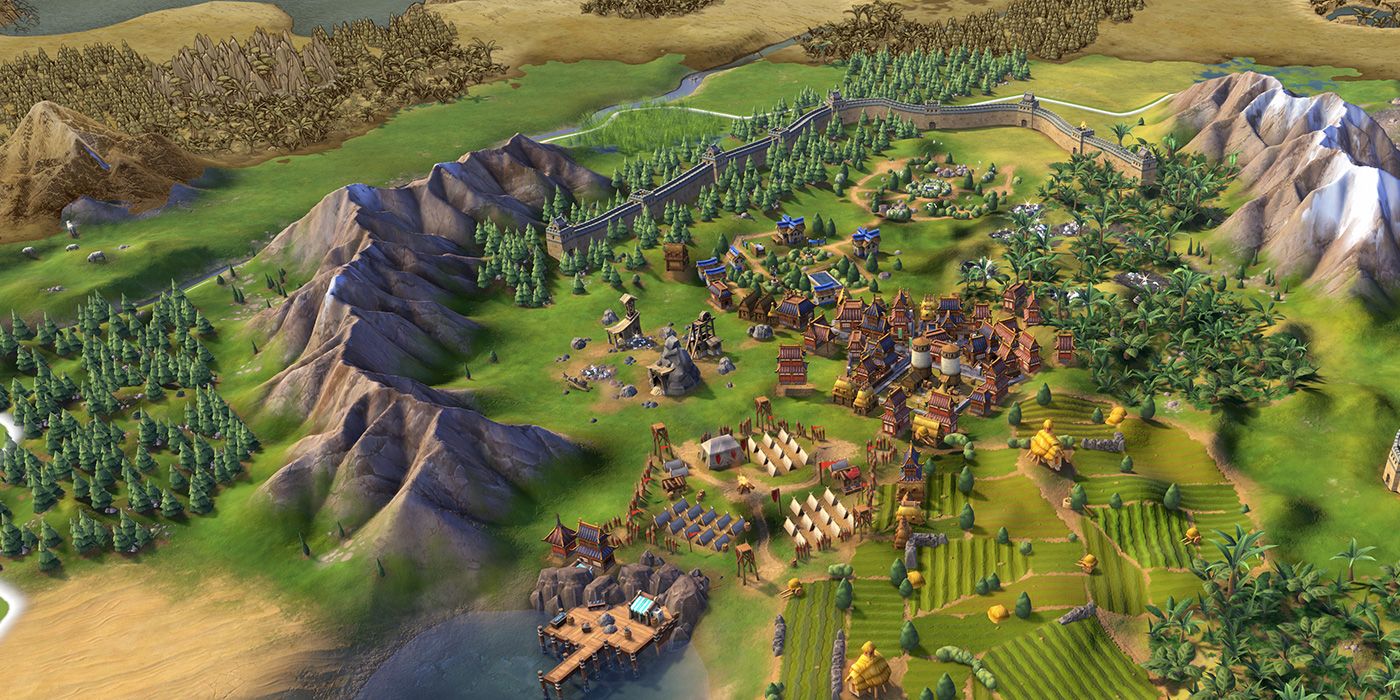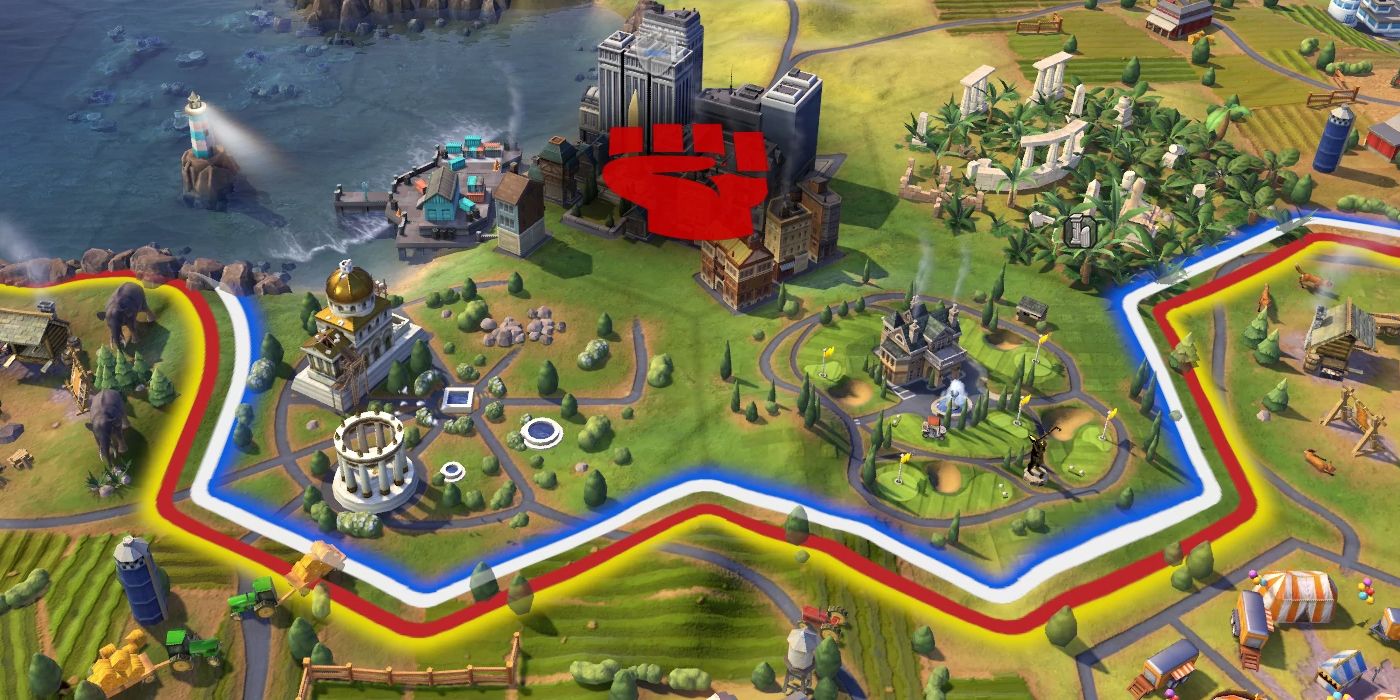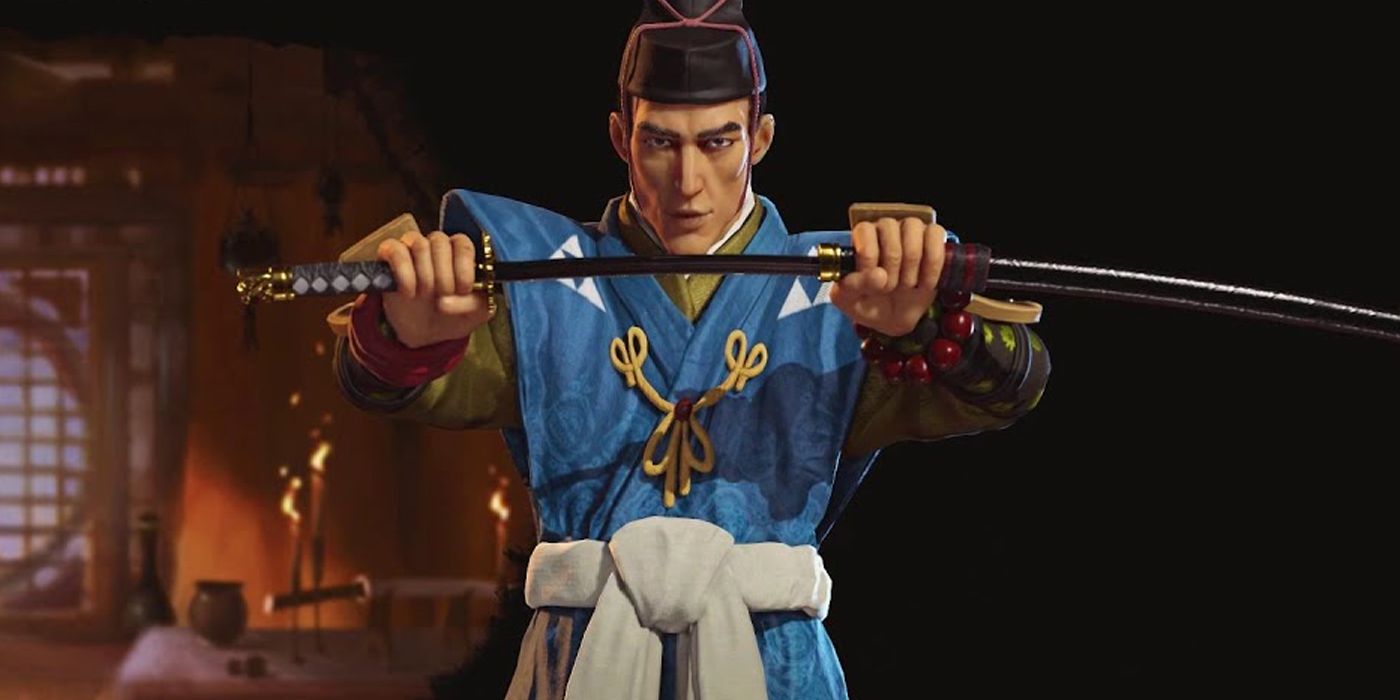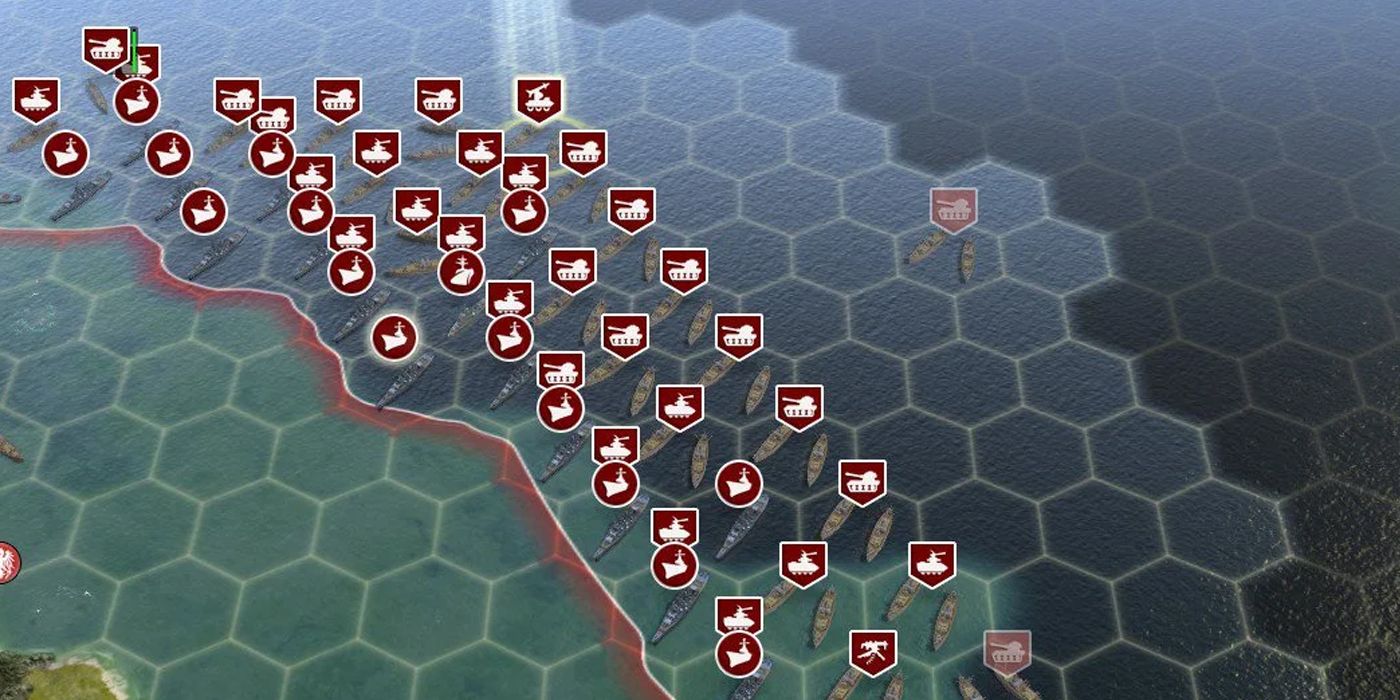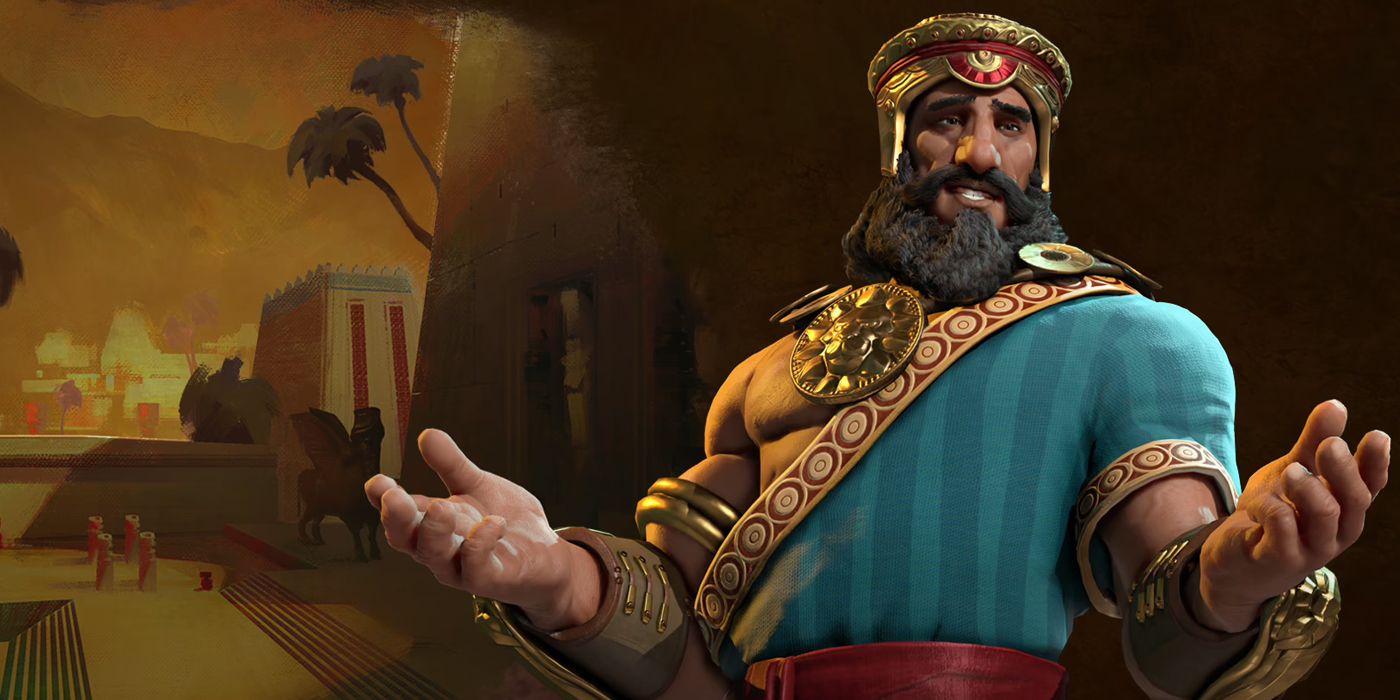What's the point of a game of Civilization 6 if players can't showcase their military supremacy? Civilization has always allowed players to expand their empire through means of war and conquest. However, modern titles such as Civ 6 try to preserve the appeal of diplomatic relations. This is where the Warmongering mechanic comes into play.
Essentially, players receive subtle Warmonger penalties whenever they engage in aggressive behavior. For instance, players get Warmonger penalties whenever they conquer another city or raze it to the ground. While more offensive players might not appreciate this new penalty, there are some ways to get around it.
Updated December 13, 2021 by Chris Littlechild: Many Civilization fans enjoy playing aggressively, declaring war on their fellow civs and taking territory from them. This is perhaps the most straightforward victory path, but it’s complicated by some mechanics that work against the warmongering player. This isn’t the way to make friends, after all.
With the game’s second big expansion, Gathering Storm (which released in February 2019), Firaxis revamped the game’s Warmonger penalties, replacing them with Grievances. To delve deeper into the Grievances system, some other methods of avoiding warmongering penalties have been added to this list. There are a lot of clever little things aggressive players can do to avoid being penalized so harshly as they conquer the world.
14 Delay Development When Planning A War
Players who end up needing to wage wars should reconsider certain scientific developments (an area that boasts its own victory path) they may want to make. Remember, Warmonger penalties increase as civilizations enter new eras. In fact, the game begins in the Ancient Era, which gives no Warmonger penalties at all in the vanilla game.
Players who plan on waging war should stop any technological plans that could lead to the next Era. That way, players will only experience the lesser penalties of their current Era. However, players need to be wary of remaining in a temporarily weakened state if they miss out on certain techs. After all, more advanced civs might mistake a neighbour being less advanced as an opportunity to strike.
13 Slow The Offensive Approach
Conquests don't have to happen as fast as possible. Indeed, it's a classic Civilization experience to have ten ongoing battles at once. However, players need to remember that the slowest acts of aggression can build huge Warmonger penalties. Players might want to dial down the aggression and instead conquer civilizations one city at a time.
Through this approach, players can progress through turns that slowly remove any Warmonger penalties. That way, players get the lowest Warmonger penalties while waging their rather slow war against their chosen foe. This approach also opens new layers of strategy, and may make it easier to end wars if needed (given the limited participants).
12 Expand As Much As Possible In The Ancient Era
Conversely, players who enjoy conquering the world might want to get started as soon as possible instead. As standard Warmonger penalties aren’t applied at all in the Ancient Era, the world is ripe for the taking.
The early game can be a prime time for attacking the neighbors as a result, but, of course, Domination-seeking leaders won’t have had the time to develop their units yet.
Some civilizations avoid this issue by having powerful Unique Units from the Ancient Era that will have an edge over the competition at the time. These include the Greek Hoplite (a Spearman replacement) and the Aztec Eagle Warrior (available immediately in place of the Warrior). The latter even has a chance to turn defeated enemy units into allied Builders, further boosting the Aztecs' expansion rate.
11 The World Doesn’t Mind Attacks Against Civilizations That Have Caused The Player Grievances
It’s no secret that the Civilization series’ AI is notorious for being rather aggressive. Prior to the Gathering Storm expansion, many fans complained that the Warmonger system was unbalanced, punishing the player for fighting back against attackers. Gathering Storm added the Grievances system, which replace Warmonger penalties and was targeted at addressing this.
The new system sees civs cause grievances with others if their actions upset them (converting their cities to a different religion, attacking, reneging on a promise and such behaviors). The amount of grievances increases as such acts go on, and decay over time as per Warmonger penalties. The great thing about this system is that, if an opposing civ causes the player grievances, the player can then inflict the same amount right back without losing standing with the rest of the leaders in that game. This allows for a certain amount of warfare against them for ‘free,’ so to speak. A diplomatic approach pays off.
10 Those Who Lean Towards Surprise Wars Should Play As Cyrus’ Persia
Needless to say, Civilization 6 utilizes a range of complex mechanics (more were added with the Rise and Fall and Gathering Storm expansions), and the Casus Belli system can be tricky. Some of its conditions, such as Wars of Liberation, can be difficult to achieve, relying on events happening around the player.
Those who feel tempted to simply attack nearby civilizations out of the blue should be wary. Surprise Wars, without a just cause, are the most punishing in terms of Warmonger penalties and grievances. Persia has an advantage here, as with leader Cyrus’ ability, Fall of Babylon, Surprise Wars are automatically treated as Formal Wars (with the associated reduction in penalties). His units are also granted extra movement in the opening turns of a Surprise War, and cities he goes on to occupy are penalized less. Wannabe warmongers would be advised to give this civilization a go.
9 Be Proactive With Settlers
Generally speaking, the name of the game in Civilization 6 is expanding your civilization. With multiple AI or human opponents all competing for the same limited map space, some might see warfare as the best route to achieving this. After all, removing a civ or two from the game can not only grant the aggressor the cities they held, but the land that civ would have potentially claimed too.
At the same time, it’s important to note that expansion into new territories doesn’t necessarily require force. Settlers are a player’s means of creating new cities without warfare. When carefully used and placed, you can develop a sprawling empire without attracting a single Warmonger penalty from the neighbors. Be careful, though, as a Settler removes one Population from the city in which they were created on completion. If this becomes a problem, the Rise and Fall expansion added Governors, and one of them, Magnus, can be given the promotion Provision; this stops Settlers in that city from cutting the population.
8 Treaty Enemies Into Submission
In the event of an inevitable war, players can choose not to conquer cities at all. Players would want to approach this peaceful strategy the same way they approach Monopoly: trade enemies into submission. Essentially, players can acquire lands halfway into the game's timeline by working on their advancements and keeping a strong enough army. That way, they can safely fend off enemies who declare war on them.
In war, players should avoid conquering cities outright. Instead, eliminate its occupying armies, pillage its improvements, and take it to zero health. This hits two birds with one stone. First, enemies who can't defeat the player will have to resort to Peace Treaties, which players can use to get more territory. Secondly, if the enemy refuses to give up said cities, the players will have a stronger army by the time the target refortifies the decimated territories.
7 Embrace Peaceful Play And Other Victory Types
Those coming to Civilization 6 from other strategy titles like the Total War series may be surprised by one thing: it’s not all about war and conquest. Far from it, in fact. Besides Domination (which requires the player to capture the original capital city of every other civ in the game), there are five other possible victory routes: Culture, Science, Religion, Diplomacy (added back to the series with the expansions) and Score.
Though religious victories tend to involve theological combat between Religious units (and careful picks of powerful religious beliefs), players can, for instance, advance down the tech tree and launch space projects for a Science Victory, or make a beautiful, tourist-tempting empire for a Culture Victory, without fighting anyone at all. Some newcomers even find they prefer these peaceful routes. Ultimately, as far as Warmonger penalties go, there’s no surer route to avoiding them than not partaking in wars.
6 Transform Liberation Into A Tactic
Players who want to up the ante with the Liberation mechanic can transform it into a Warmonger buffer. Essentially, players engaged in war should stay wary of target cities for conquest. Ideally, players should conquer stronger cities and avoid weaker cities to ensure that the Warmonger penalty isn't too high. Alternatively, they can liberate less relevant cities they conquered to counteract the otherwise-high penalty of taking an important city.
Players can also conquer cities to use as leverage in peace talks. They can always liberate (or sede) cities as part of a Peace Treaty, and ask for other cities in return. When used tactically, players can keep irrelevant cities and liberate them in place of a more important city. The best part is that the Warmonger reduction for liberating the irrelevant cities can lessen the overall Warmonger acquisition when claiming a relevant city.
5 Spare A Civilization's Last City
Nothing feels better than wiping a civilization off the map. However, conquering and razing a civilization's final city incurs a much larger Warmonger penalty compared to taking others throughout the course of the conquest. As such, it's often tactically sound to spare a civilization's last city and leave it alone.
A civilization is the sum of all its parts. It quickly falls behind if several of its cities end up weak, or as free real estate for other civilizations. Additionally, leaving a fractured civilization can slowly cause its population to devolve into dissent and break itself into Free Cities anyway, through the Loyalty mechanic that was added with Rise and Fall (which also brought some fantastic new civs, though there are still some that could have been added). Granted, this just changes the face of the foe if an opposing civ's Loyalty Pressure on that Free City is higher than yours. However, the goal here is to eliminate a strong civilization without suffering the consequences.
4 Liberate Opposing Cities, Perhaps Repeatedly
Players can do more one more thing to a civilization's last city to put it to good use. Remember, when one civ fractures another by getting them close to a wipeout, they can lose the loyalty of their cities. When this happens, that city can start a revolt and become a Free City. Other civilizations can liberate that free city and return it to its original civilization. Doing this reduces Grievances.
Returning a free city to a weak civilization won't increase its loyalty too much. Players who wait it out can see the same liberated city just flip back into a Free City, ripe for liberation once more. As such, players can just repeat this liberation tactic to get rid of their warmongering penalities. With the right timing and positioning, players can also spare that city the trouble and absorb it into their civilization.
3 Use A Casus Belli Wherever Possible
Players itching to attack another civilization (there are so many ways big power plays can be pulled off) should wait for their target to strike them first. If they do, players should get a Peace Treaty as soon as they can. Contrary to popular belief, peace talks don't necessarily imply surrender. Rather, this is the enemy handing a legitimate reason for war on a silver platter.
After taking a Peace Treaty as the defender, players should Denounce the attacking force right away. Doing this will trigger the Casus Belli mechanic, giving the player various reasons for war in a few turns. When engaging in war via a Casus Belli, players get reduced or even no Warmonger penalties.
2 Invite Friends To Attack Foes With, Or For, You
Players can avoid becoming deemed warmongers if other civilizations do the fighting them. This approach capitalizes on relationships players have with other civilizations. If they like the players enough, they may just join the player's attack against their target civilization. This doesn't always remove Warmonger penalties. However, having another civilization participate means these extra participants can become more lenient. Joint Wars can be very useful (Gilgamesh's Sumeria gets several bonuses relating to them).
Alternatively, players can twist the view of other civilizations towards their target. If their target declares war on them, they can accept the initial Peace Treaty and denounce them as soon as possible. This potentially transforms some nearby civilizations into allies or enemies of the target. Given that the target showed the first sign of aggression prior to the treaty, the target is clearly the enemy.
1 Build Trust As An Ally, A Liberator
If civilizations label an aggressive player a Warmonger, a more peaceful player becomes a friend. Players who want to avoid Warmonger penalties will appreciate the return of their investment from buddying up with the right people. Ideally, these new friends should have a bone to pick against the target. That way, they're easier to convince to switch sides.
Players should make friends with civilizations their target stole cities from. That way, players can act as a Liberator and instigate a war to claim the "stolen" cities. With this Liberation War, players get less Warmonger points, providing they return the separated cities to the masses.



